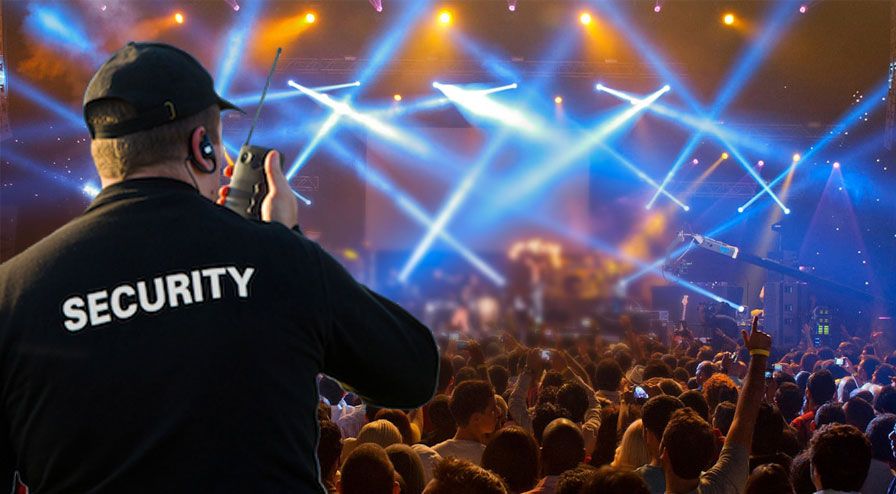Planning and executing a successful event involve numerous considerations, with safety and guest experience being two of the most crucial. Balancing these two elements can be challenging, but effective security strategies can ensure that both are addressed inclusively. In this blog, we will explore various strategies for achieving this balance, focusing on how to implement effective security while maintaining a positive and enjoyable experience for guests.
Alpine Protection Services
Alpine Protection Services stands out as a premier provider of inclusive security services, dedicated to safeguarding both residential and commercial properties with unmatched expertise. With a focus on personalized service, Alpine Protection Services tailors its security strategies to meet the unique needs of each client, ensuring maximum safety and peace of mind. Their team of highly trained professionals utilizes the latest technology and best practices in security to offer a range of services, from advanced surveillance systems to on-site security personnel. Committed to excellence, Alpine Protection Services not only addresses current security challenges but also anticipates and prepares for potential risks, making them a trusted partner in maintaining a secure and protected environment.
Understanding Its Importance
Event security services is a critical component of any event planning process. It encompasses all measures taken to ensure the safety and well-being of attendees, staff, and property. Effective security involves not only preventing potential threats but also creating a secure environment that does not detract from the enjoyment of the event. The importance of security cannot be overstated. A well-implemented security plan protects against various risks, including theft, vandalism, and disturbances. It also addresses potential emergencies, such as medical incidents or natural disasters. By prioritizing security, organizers can provide a safe and smooth experience for everyone involved.
Conducting a Risk Assessment
The first step in pre-event planning is conducting a thorough risk assessment. This involves evaluating the event’s location, size, and type, like identifying any potential security threats. A risk assessment helps determine the specific security needs of the event and informs the development of an inclusive security plan. For example, a large public event in an urban area may require different security measures compared to a private party in a rural setting. By understanding the unique risks associated with each event, organizers can tailor their security strategy to address them effectively.
Developing a Security Plan
Once the risks are identified, the next step is to develop a detailed security plan. This plan should outline all security measures, including staffing requirements, access control procedures, and emergency response protocols. A well-structured security plan ensures that all aspects of event security are covered and that everyone involved knows their roles and responsibilities. The security plan should also include contingency plans for various scenarios, such as medical emergencies or security breaches. By preparing for potential issues in advance, organizers can respond quickly and effectively if problems arise during the event.
Ticketing and Registration
One of the primary methods of access control is ticketing and registration. By requiring guests to purchase or register for tickets in advance, organizers can control the number of attendees and ensure that everyone who enters the event is accounted for. In addition to traditional ticketing methods, many events now use digital tickets and registration systems. These systems can streamline the check-in process and enhance security by providing real-time updates on guest attendance.
Security Screening
For larger events or those with heightened security concerns, security screening may be necessary. This can include bag checks, metal detectors, and ID verification. Screening helps identify potential threats and ensures that prohibited items are not brought into the event. While security screening is important for safety, it’s also crucial to manage it in a way that minimizes inconvenience for guests. Efficient and respectful screening processes can help maintain a positive guest experience while still addressing security concerns.
Training and Briefing Staff
Effective event security requires a trained and informed team. Staff members should be thoroughly briefed on the security plan and their specific responsibilities. This includes security personnel, event staff, and volunteers. Training should cover a range of topics, including emergency procedures, crowd control techniques, and communication protocols. By ensuring that everyone involved in the event is well-prepared, organizers can enhance the overall effectiveness of their security measures.
Designing Event Layout
The layout of the event venue plays a significant role in crowd control. A well-designed layout should include clear pathways, designated areas for different activities, and ample space for movement. Organizers should consider the flow of foot traffic and ensure that key areas, such as entrances and exits, are easily accessible. Signage is also important for guiding guests and managing crowd flow. Clear and visible signs help guests navigate the venue and reduce confusion, contributing to a smoother and more enjoyable experience.

Staffing and Training for Crowd Management
In addition to layout and signage, having trained staff members dedicated to crowd management is crucial. These staff members should be positioned strategically throughout the venue to monitor crowd movement, address any issues, and assist guests as needed. Training for crowd management should include techniques for handling large groups, resolving conflicts, and providing assistance in emergencies. Well-trained staff can effectively manage crowd dynamics and ensure a safe and pleasant environment for all attendees.
Conclusion
Balancing safety and guest experience is a critical aspect of event security services. By implementing effective strategies and focusing on both security and guest satisfaction, organizers can create a secure environment that enhances the overall event experience. From pre-event planning and access control to crowd management and emergency preparedness, every aspect of security plays a role in achieving this balance. Effective security involves careful planning, thoughtful implementation, and ongoing evaluation. By leveraging technology, collaborating with law enforcement, and continuously improving their approach, organizers can ensure that their events are safe, enjoyable, and memorable for all attendees.



